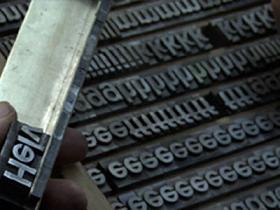I didn’t think I’d make it to Silverdocs this year as I am living in New York but it looks like I’ll be there Saturday at least. Here are a few I’m going to try to attend:
 WINNERS AND LOSERS
WINNERS AND LOSERS
The Kaiserstuhl coke factory in the Ruhr Valley of Germany is the unlikely setting in Michael Loeken and Ulrike Franke’s illuminating, candid, and at times hilarious film about the shifting global economy in the East and the West.
A small number of newly laid-off German employees of a modern coking plant (which refines coal into more efficient burning coke) assist 400 Chinese laborers to dismantle the factory, piece by piece, so that it can be shipped off and rebuilt by its new owners in China. The technology transfer will advance energy efficiency in China and literally fuel the astounding growth of the Chinese economy.
In the film, culture clashes abound as German efficiency and Chinese industriousness collide – often to great comic effect. The German workers lament the loss of work and the destruction of the state-of-the-art plant that would have been the source of their own livelihood until retirement. With ample caution and restraint, and no small dose of resentment, they oversee a meticulous, thorough, and systematic breakdown of the plant. Meanwhile, the Chinese laborers work extended hours, long into the night, seemingly sure in the belief that their sacrifice will contribute to the collective glory of an economically triumphant China. At times they put their own safety at risk in order to meet the demands of their superiors, and also hasten their return to the families waiting back home.
 HELVETICA
HELVETICA
Once in a rare while, a film comes along that draws an irresistible story from the unlikeliest source. First-time director Gary Hustwit’s HELVETICA is just such a film. This playful exploration of the font that defined modern type design is both a history of the titular typeface and an engrossing meditation on graphic art that decodes the subtle influence of fonts on our emotions, attitudes, and desires.
Conceived in Switzerland’s Haas type foundry, Helvetica was created to encapsulate the burgeoning postwar modernist movement and its hallmarks of neutrality and order. The font quickly became the default choice for corporate branding, street signage, and print design.
Inevitably, this ubiquity sparked a design-world rebellion, and the film gives equal voice to cheeky postmodernist detractors who came to view Helvetica as a tool of corporate hegemony. Reacting against uniformity, younger artists developed hand-drawn fonts, fractured layouts and an elaborate arsenal of outré methods intended to disrupt Helvetica’s “dull blanket of sameness.”
But Helvetica’s uncanny balance and cool clarity survived this onslaught, and a new generation of designers reimagined it not as a global monster of conformity but as an infinitely extensible tool that functions in any context. As the film’s cast of design luminaries trade barbs and debate the merits and pitfalls of the world’s most famous font, the mysterious ability of Helvetica to accept and contain an array of interpretations and sensibilities emerges.
 MADE IN LA
MADE IN LA
How valuable is a “Made in America” label if it just means the sweatshop is here at home?
Lupe, Maria and Maura are immigrant workers in America’s garment industry. Their American Dream entails 14-hour days and exploitation by retailers who use sub-contractors to elude responsibility for violating minimum wage law. Their workplaces bear striking resemblance to early 20th-century sweatshops, before the labor movement won rights for American workers.
Whether due to lack of knowledge about their rights or lack of confidence about asking for them, the workers accept the horrific conditions until the activists at the Garment Workers Center help them organize and legally challenge the large national retailer who sells the clothes they sew. MADE IN L.A. follows them through this struggle, capturing the uncertainties and challenges they face and celebrating the courage they develop as they begin to take control of their own lives.
 NOTE BY NOTE (MAKING OF STEINWAY L1036)
NOTE BY NOTE (MAKING OF STEINWAY L1036)
Many documentaries have told the life story of a distinguished musician, recording early beginnings, influences, training, and the road to the success that has deemed the subject worthy of attention in the first place. But few, if any, have followed the life of a musical instrument, illuminating how it too has characteristics and idiosyncrasies that are integral collaborators in artistic creation. This delightful film follows the extraordinary journey of a single piano—the Steinway L1037—from its humble beginnings in the forests of the Pacific Northwest to a Steinway showroom in Queens, where it awaits its destiny, whether to sit in the corner of a Long Island living room or at the center of the Carnegie Hall stage. Filmmaker Ben Niles leaves no detail uncharted as he reveals the meticulous construction and craft that goes into the making of every single one of the world’s most celebrated instruments. The piano was the most complex instrument of its time when invented nearly three centuries ago. It is still made in much the same way—at least in the Steinway factory—and remains a miracle of engineering. Niles interviews the skilled craftsmen, factory workers, eager salesmen, amateur pianists and concert aficionados, and the myriad other people who come into contact with the grand instrument. In the end, this is an ode to the most unexpected, and perhaps ironic, of unsung heroes. It reminds us how extraordinary the dialogue can be between an artist and an instrument—crafted out of human hands but borne of the materials of nature.

 Filed by cynthia rockwell at 8:36 am under Just Movies,TV
Filed by cynthia rockwell at 8:36 am under Just Movies,TV 4 Comments
4 Comments 
 I was listening to NPR recently and Terri Gross introduced an interview with the director and writer of Juno, a film I had no plans to see based on the painstakingly quirky promos for the film. But when Terri mentioned the writer’s name–Diablo Cody–I did a double-take and said wait, where do I know that name from? Then she introduced Cody as being a former blog-writer, her former blog being that of her life as a stripper. And ding! I remembered her. I used to read her blog every day, back in the day. She was a full-on peep show girl as I recall, performing for peepers. PussyRanch, her blog was called, and she had what seemed a strangely…wholesome? attitude about it. Straightforward, unabashed, unconflicted, even cheery. Indeed, so do all of the characters in Juno, with regard to teen pregnancy. Depth and complexity is clearly not Ms. Cody’s strong suit. But hey, it’s a comedy, right?
I was listening to NPR recently and Terri Gross introduced an interview with the director and writer of Juno, a film I had no plans to see based on the painstakingly quirky promos for the film. But when Terri mentioned the writer’s name–Diablo Cody–I did a double-take and said wait, where do I know that name from? Then she introduced Cody as being a former blog-writer, her former blog being that of her life as a stripper. And ding! I remembered her. I used to read her blog every day, back in the day. She was a full-on peep show girl as I recall, performing for peepers. PussyRanch, her blog was called, and she had what seemed a strangely…wholesome? attitude about it. Straightforward, unabashed, unconflicted, even cheery. Indeed, so do all of the characters in Juno, with regard to teen pregnancy. Depth and complexity is clearly not Ms. Cody’s strong suit. But hey, it’s a comedy, right? WINNERS AND LOSERS
WINNERS AND LOSERS HELVETICA
HELVETICA MADE IN LA
MADE IN LA NOTE BY NOTE (MAKING OF STEINWAY L1036)
NOTE BY NOTE (MAKING OF STEINWAY L1036)